Last week, out of Elise’s gifts, I showed you an exceedingly quirky and romantic and feminine leaf-green velvet evening wrap – a perfect illustration of the mid-late 1930s Medieval Revival. This week I’m sticking with velvet evening wraps, but going to the other extreme, to illustrate another fashion trend of the late 1930s – the masculine look for women. Thus an almost severe and mannish evening cape:
You’ve already had a sneak-peek at this rather masculine monochrome evening cape: I wore it to the premier of Porcelaintoy’s Monsters.
I’m afraid the cape hasn’t photographed very well – the contrast of the black velvet and the white satin lining was just too tricky to balance. I’ll try my best to tell you about it in great detail to fill in the gaps.
Like most of the textiles Elise gave me, this cape dates from the late 1930s, as shown by the materials used and the broad shoulders.
The cape outer is black velvet – almost certainly rayon. It’s fully lined in quilted rayon sateen.
The lining swings loose from the velvet outer at the hem, allowing the inside construction to be inspected. The quilted is backed in some soft of fill – definitely synthetic, but I’m not sure what it is. The fill is foxing badly with age.
While the lining is relatively cheap, and the outer velvet is probably rayon, a bit of luxury has been added in the cloaks hood with a silk satin lining.
It makes sense that valuable fabric would be used where it makes the most effect: the hood lining is always visible, whether it is hanging down the back, or pulled up, with the silk framing the face.
For all its severity and masculinity, this cape does have one distinct similarity to the leaf-green jacket: the shoulders are gathered in exactly the same way. The extra stitching controls the fullness, and padding and structure underneath the gathers create the fashionable broad-shouldered effect.
The only other decorative detail in the construction of the cape is the double-buttons that fasten the front of the cloak, a feature common to male evening cloaks of the early 20th century.
The cape is a commercial garment, as shown by the label in the neck, which still has the original owner’s initials pencilled on it! The label could be the garment maker, or the department store that sold the garment.
Despite its age, and unlike most of the other garments, the cape is still quite robust and eminently wearable. I’m not sure if it will get many more outings – I do want to keep it in perfect condition. I did feel quite fabulous and glamourous in it! I hope MBH, whoever she was, felt the same when she wore it.

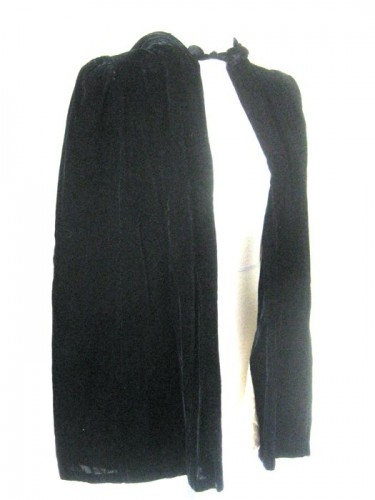
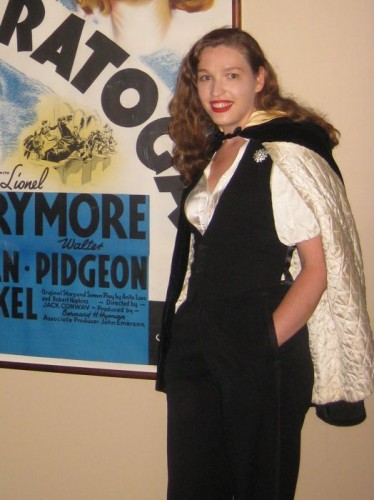
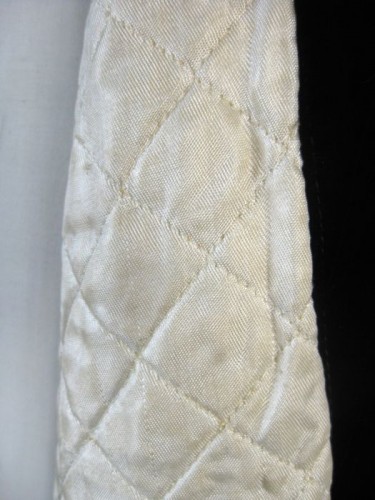


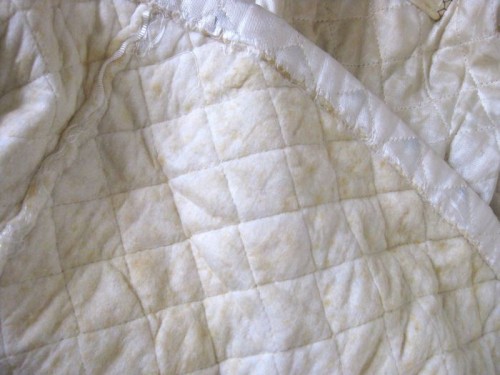
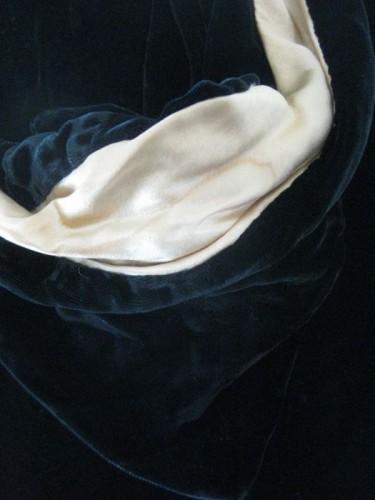


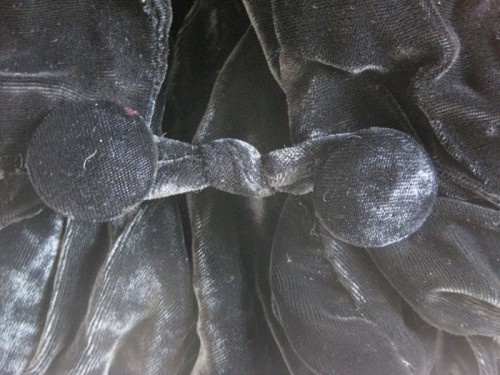
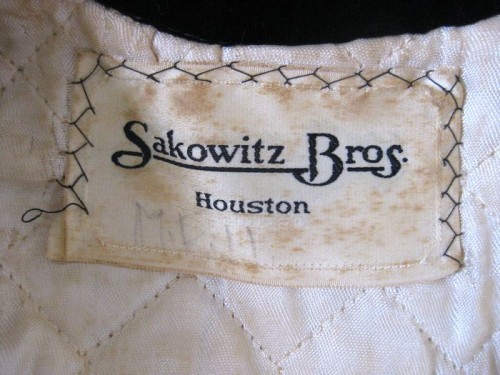

That cape makes me think of ‘phantom of the opera’.
Sakowitz (is) was a department store in Houston so I imagine the label is from the store it was purchased from. What a great find! 😀
Sakowitz was a department store in Houston.
http://en.wikipedia.org/wiki/Sakowitz
I like this one. The lines are clean, and the design’s simplicity is very effective. I’m getting quite interested in this shoulder gathering method.
It’s a very nice cape, especially the button closure!
The first thing I thought, though, when I saw the label was ‘Mitch’. I don’t know if that’s my eyes deceiving me, or that that might be the name that’s written there. Would be interesting to know who owned it so long ago.
Isn’t it lovely? The name is definitely not Mitch. If you click through to the larger image, you can clearly see it is three letters separated by ‘.’
This garment I like; it’s beautiful, and it would suit my style. It suits you very well too! Wear it in good health.
It’s lovely!